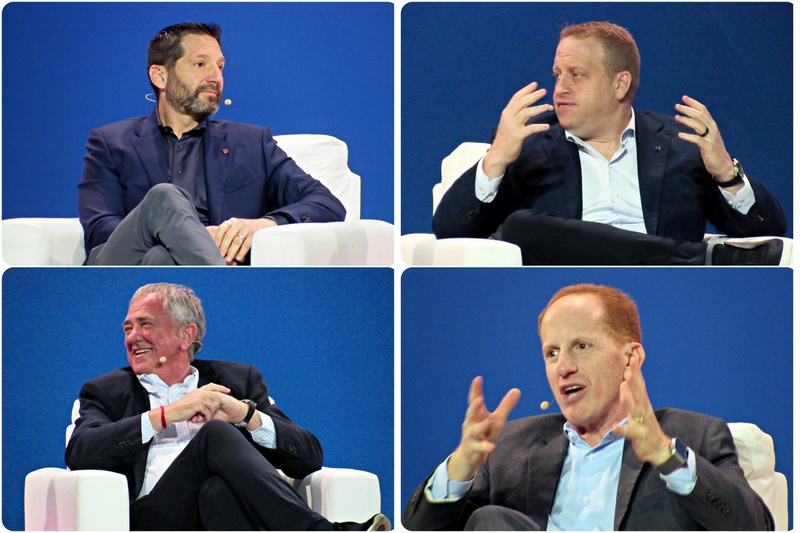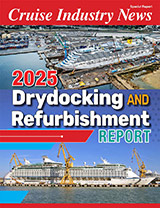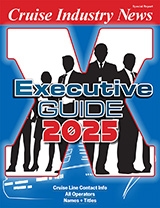Cruise industry senior leaders were in Miami Beach on Tuesday morning for a state of the industry panel.
Josh Weinstein, president, CEO and chief climate officer, Carnival Corporation, said the first quarter of the company’s performance was amazing, noting strong per person per day yield results.
“The level of onboard spending we saw in the first quarter and what we said on the call and continued into March was incredible,” he said.
“What do the advanced bookings look like? Wave (season) for us was interesting. It was inconsistent and choppy.
“The macro economy does have an impact at times with how people are living their lives,” Weinstein said, also noting that people get used to the new normal and then bookings pick up again.
Weinstein said the company was not immune from a recession but was super resilient.
“When times are harder people are looking to make their money go farther,” he added.
Pierfrancesco Vago, executive chairman, Cruise Division of MSC Group, said the company had made inroads in Europe to extensively penetrate the market.
“The value for money is there,” he said.
Vago said the company had increased rates and the market had responded well.
Harry Sommer, president and CEO, Norwegian Cruise Line Holdings, said that following the pandemic, 2024 was a great year with the highest yield growth ever.
“Even more importantly, we had record guest satisfaction scores,” Sommer said.
“This year started a little bit choppy … Two shaky days in the stock market do not lead us to change our long-term strategy.”
Supply
Jason Liberty, president and CEO, Royal Caribbean Group, said going forward, there was a constraint on supply growth based on shipyard slot availability.
“On the supply side, you are seeing great confidence in the cruise companies as we are managing our business for the long term. We are ordering ships further and further out. It shows we are managing our business for the long term,” Liberty explained.
“In reality about half the orderbook are ships under 100,000 tons,” he continued. “Current economic noise will not prevent our collective ambitions to grow this industry.”
Weinstein said the new AIDA ships just ordered from Fincantieri were mid-sized at 4,200 guests each, set for delivery in 2030 and 2031.
“With respect to our fleets and investments, we are not looking to be bigger to be bigger. We’re looking for the best guest experience and economics that are going to push us forward,” he said. “It’s not an arms race for the sake of being bigger.”
Vago explained the industry was well segmented, from contemporary mass market ships to premium and luxury ships.
He said going forward, the contemporary market may see slightly smaller ships in order to open more deployment options. Those could also be positioned in the premium market, Vago added.
Liberty said destination mix was an important factor.
“You can’t put the same size ships in all different places, but you want to keep your customer in your brands. Because we are also looking further out, some of these ships are getting to 35 to 40 years in age, some of these (new ships) will be net replacement,” Liberty said.
Speaking of passenger mix, Vago said when MSC opened sales for the Poesia’s debut season in Alaska for 2026, the majority of first-day bookings came from European customers.
Sommer said among the biggest strengths of the cruise industry is the ability to source guests all over the world.
Politics and More
Commenting on the political landscape, Sommer said cruising was liked in most parts of the United States.
“We are in a position where we have lots of friends in lots of different places,” he added, noting both ship deployment in multiple states and purchasing in various states and globally.
All four leaders said there was no direct impact from tariffs at this point.
“The uncertainty and ripple effect absolutely has an impact,” Weinstein said. “As of now the answer is we don’t know. It takes some time for people to get comfortable with the uncertainty.”
Vago said MSC was engaging with coastal communities to have a circular economy.
“We need to talk to coastal communities to see how we can make the experience better.”




